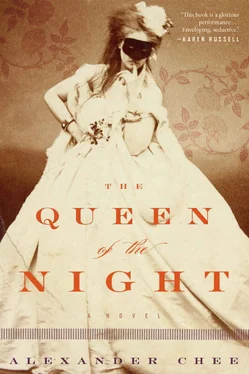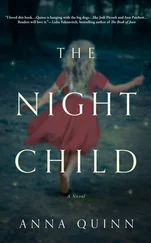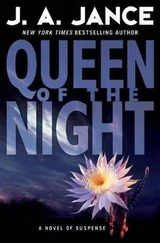The British newspapers reported the French singer Lilliet Berne, the famous Falcon soprano who never spoke in order to protect her voice, greeted her Empress-in-exile with the full grand curtsy that night. The grand curtsy was very different, though, performed at the balls the Empress had once thrown, done when one was presented to her. That curtsy was performed by sinking noiselessly to the floor and pressing one’s face into the skirt of your gown as you held it out to the sides, so that the woman performing it resembled a bloom that had fallen on its face. You then rose up again and dipped, your face tipped down, your head, and, what’s more, your hair never above the height of her eyes, before you sailed on, making room for the next lady coming in behind you.
But this was not what I had done.
The newspaper’s writer also assumed her smile was a memory of having heard me sing, but I wonder if she ever had or if she remembered something else if she did, in fact, smile: her New Year’s balls, the Tuileries, the dances at Compiègne. Or perhaps it was simply the pleasure of seeing the emeralds along my neck, reminding her of her own — my taste in emeralds came from handling hers. It is almost certain to me she did not recognize the girl who’d once cared for her furs and put away her jewels, the one who had packed her for Compiègne, waiting for her to ring all those times in the back stairs of her palaces, running to her at once at the sound of her bell. Until she ran away.
The girl who also had so foully betrayed her, in other words. And if she did recognize me, it may be she smiled for seeing that girl bow to her one more time. For, of course, she had seen my neck the most of all.
Afterward, as Aristafeo rejoined me, after she had moved on, we toasted our luck in avoiding recognition by ordering champagne in our box. He laughed at how something as simple as a bow or curtsy could disguise one. I felt sure the evil I’d feared coming for us had passed over us now. And that this luck of ours had come about because we were together finally.
And so we toasted a long life together, full of this luck.
We could see her in the distance. Her white halo of hair in the royal box across from ours glowed in the gaslight, she the guest of the Queen, of course, her opera glasses flashing or, mostly, turning to an unseen friend to make remarks on what was certainly not the opera.
I had not wanted to see her again in Aristafeo’s company; after all that had transpired, it seemed too much. Now, though, I could think of it all more easily. Still, the moment in Aristafeo’s library when I lifted the musket returned. The memory of her scent, the sight of her nightgown. Her bracelets on the table.
The ruby rose from the Emperor that I’d set down beside them.
I understood finally something I had never understood before then. The Emperor wore no ruby flowers. My ruby token, it had been from her.
The Emperor, the Comtesse, the Empress. Their loneliness had made a back passage through all their lives, and I had spent so much of my life there. It was fitting, it seemed to me, that I should see her here like this.
For theirs had been my loneliness, too.
I should have known her for the omen she had to be, there in the dark. It was fitting that I should see her right before this departure. She in her exile some sign of my own to come. The Comtesse having hunted us both here. But I did not.
Instead, I wondered if she had known the way I was used against her or if I was only a secret between the Emperor and the Comtesse, a counter in the secret battle they had waged. I would never know. Those were always the terms.
And then the opera began, and we watched as Amelia, the soprano lead, searched the execution grounds for an herb of forgetfulness, eager to rid herself of the memory of sinful passion. I had the thought I always had at this point in the opera: How young she must be to think an herb could take something like this memory away .
§
In the paper the next day, the item of our meeting ran with a caricature of us, THE EMPRESS AND HER GéNéRALE.
The item read: At last night’s performance of Verdi’s Un Ballo in Maschera , the attendees outside were greeted to another performance, that of Paris’s own La Générale, Lilliet Berne, greeting her Empress-in-exile Eugénie with that most proper French curtsy, bringing a smile to her face and gasps from the crowd around her. No doubt the sight of her subject-in-exile giving her this honor warmed Eugénie’s heart.
We were drawn with doll’s bodies and the enormous outsized heads of dolls. Her crown was drawn askew, of course, giving her the appearance of being confused or drunk. And I, I appeared to be the picture of servility, my general’s coat drawn over my gown despite my having left it at home; I wore it only when I wanted to be recognized.
The item soon made it to Paris, where it was repeated in the French papers with the same caricature and a great deal of public outrage. I should not, as a patriot, have greeted her this way, to do so was to declare oneself still her subject. Was I a monarchist? And so on. And what’s more, speculation ran as to why I was there at all, as I was thought until then to still be in Paris, in mourning for the tenor.
This was not the beginning of our good luck, then, but the long shadow’s first fall. It was not where we thought it would be, and so we did not see it for what it was.
§
We left for Russia the next morning. From the Empress-in-exile we then went for an audience with another, reigning under a near permanent midnight at the end of the Baltic Sea in her palace of crystal and mirrors. Our trip was long but urgent — if we waited any longer the sea ice would soon make the trip impossible.
At first, I thought the Russian Empress had sensed that the opera was not precisely for her, much less her son, in the way any woman who’s become an empress can tell these things. She was a patroness of the arts with a sapphire the size of an infant’s face in her crown. And the face of a child herself. She was a beautiful woman, Maria Feodorovna, but with large sad eyes. She looked as if she were the fisherman’s wife whose husband had caught the magic fish and the jewel of wishing, the one she uses to wish herself a palace — and finds herself lonelier than she thought.
During our audience, I watched my reflection in her sapphire as I sang for her the opera’s major arias in the mirrored recital room of her frightening palace. I knew not to look directly at an empress’s eyes, and so I looked instead into the sapphire.
A peculiar hunger, that for sapphires. I wanted to reach out and pluck it from her brow, to press it against my cheek.
I forgot myself only once and looked down to see her terrified eyes look back. I pitied her what I saw in those eyes. My song never broke. I swept my eyes down farther as if this were only a part of the dramatic gesture.
At the conclusion, she was polite, but she rejected the opera commission, declaring it, with its cast of animals and circus freaks, too expensive to produce on the stage anywhere in Europe.
Perhaps the Prussians can afford this, she said, with a dark look at us both. With their war duties.
I tried not to laugh at this, for how clearly it was a lie. The opera had been written precisely to anticipate the extravagance of a young Russian prince’s celebration. The animals alone wouldn’t have cost more than the jewels on one of her slippers that day. As she pronounced against it, I listened as if I were very far away. I watched as Aristafeo accepted her decision politely, for she was an intelligent woman somewhere under the enormous gems.
I knew her sapphire, then; I was sure it had been Eugénie’s. There on her brow a fortune enough to set us up for the rest of our days, though it would appear not to have been enough to rescue Eugénie after all.
Читать дальше












